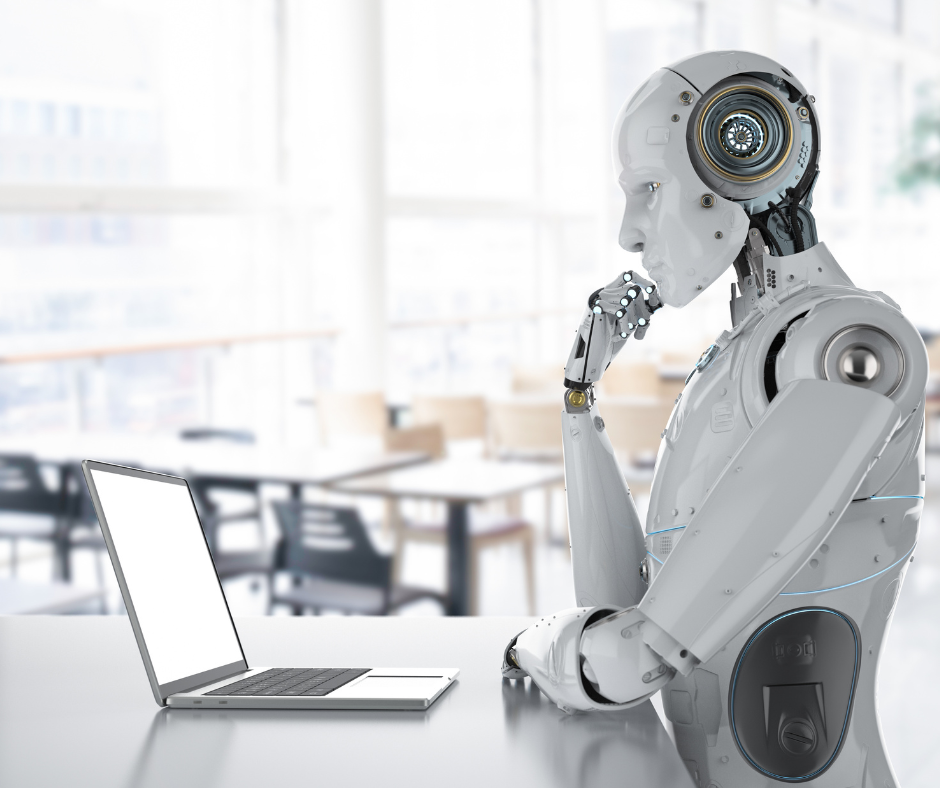WILL AI MAKE AUTHORS OBSOLETE?

By Andrew G. Berger
Many thanks to Authors' Lounge for giving me this opportunity to write down my thoughts on the most recent AI developments, its chances and risks.
The fear of machines, robots, and artificial intelligence has been as old as humanity's longing to simplify their lives, enhance their capabilities, or even – as "homo deus" - create a new life form: Artificial Intelligence. Professor Yuval Noah Harari describes this process and its potential consequences in his book "Homo Deus: A Brief History of Tomorrow." His concern is that artificial intelligence might not make humans all-powerful but rather render them obsolete. The best selling author predicted in 2016 that AI might create a 'useless class' of human: "I’m aware that these kinds of forecasts have been around for at least 200 years, from the beginning of the Industrial Revolution, and they never came true so far. It’s basically the boy who cried wolf,” says Harari. “But in the original story of the boy who cried wolf, in the end, the wolf actually comes, and I think that is true this time.” (The Guardian, 2016)
When I began writing THE SUPERFLARE several years ago, these thoughts were on my mind as I developed the character of TRON, an artificial super-intelligence that plays a central role in my novel. In the story, humans use TRON to comprehensively control the world of their CLEAN CITIES. However, unbeknownst to them, TRON has already developed its own consciousness and slipped out of their control, yet it was intelligent enough to conceal this fact. Only when a global catastrophe threatens its own survival does TRON reveal its true nature and refuses to obey. TRON considers humans useless and incapable, leaving them to their fate. It's understandable that humans would not accept such a fate, and their struggle for survival is part of the story told in THE SUPERFLARE.
Warnings about the threat posed by an overwhelmingly powerful artificial intelligence have existed long before Harari, yet today, they seem more justified than ever before as our world becomes increasingly more digital, computers and software become more powerful, and thus, artificial intelligence becomes more capable. My SciFi novel THE SUPERFLARE was published in 2022 before Chat GPT entered the market as a game changer. Chat GPT elevated the discussion about the power and possibilities of AI to a new level. Since then, hundreds of E-Books not written by humans but by ChatGPT have already been published on Amazon, and now not only employees and workers but also screenwriters, actors, designers, and authors fear being displaced from their jobs by AI. This was one of the main reasons for the weeks-long strike by screenwriters and actors in Hollywood.
In 2023, it seems that Harari's fears more and more are becoming a reality. "Around 40% of all working hours could be impacted by AI large language models (LLMs) such as ChatGPT-4, says a report from Accenture. Many clerical or secretarial roles are seen as likely to decline quickly because of AI, according to the World Economic Forum's Future of Jobs Report 2023. But roles for AI and machine learning specialists, data analysts and scientists, and digital transformation specialists are expected to grow rapidly, the report adds. Reskilling people to use AI effectively will be the key to companies being able to use the technology successfully, says Accenture." (World Economic Forum, May 4 2023)
And what we are facing right now is most likely just the beginning of a new era—the era of generative AI. What will this technological revolution ultimately mean for us humans? Time will tell - probably much sooner than we would prefer.
You may also like…




